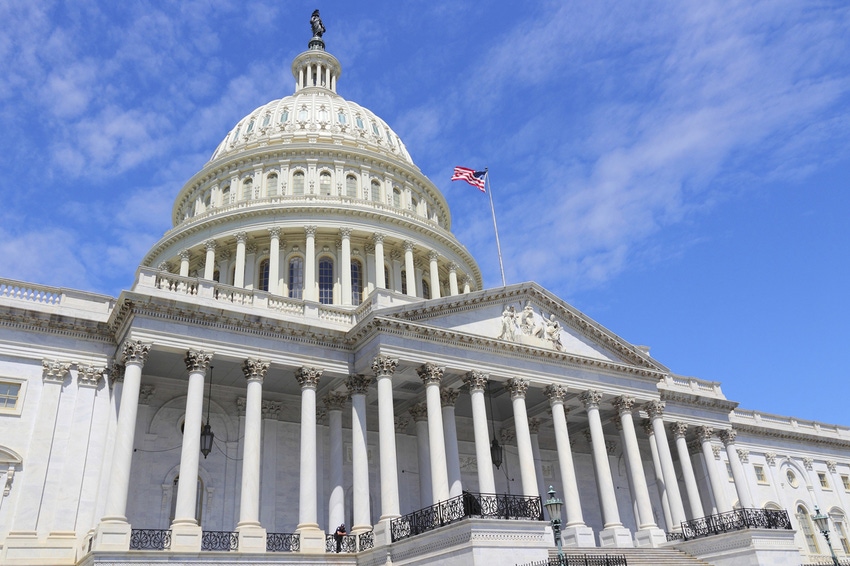Legislation offers flexibility to state ag departments in addressing needs resulting from COVID-19 pandemic.
May 20, 2020

The COVID-19 pandemic has caused severe impacts across America’s agricultural economy, and there is limited time to act in order to avert the worst shocks to America’s food supply and rural communities. The newly introduced bipartisan Farming Support to States Act would help address this challenge by increasing the reliability of food access, stabilizing food supply chains, responding to severe food supply disruptions, preventing and reducing catastrophic losses of livestock, milk, produce and other products and stabilizing rural economies by reducing the impact of agricultural market shocks and panicked herd and farm liquidation.
Sens. Tammy Baldwin (D., Wis.), Susan Collins (R., Maine) and Angus King (I., Maine) introduced the bipartisan, bicameral legislation, the Farming Support to States Act, to provide states with access to immediate, flexible funding to aid in responding to urgent and emerging issues caused by the COVID-19 pandemic in America’s agricultural economy and food supply chain. Reps. Xochitl Torres Small (D., N.M.) and Dusty Johnson (R., S.D.) introduced bipartisan companion legislation in the House of Representatives.
As agricultural prices plummet, farmers and processors are making tough decisions about their future. Large-scale financial losses have the potential to rapidly shrink the economic production of agriculture and the rural economy even further than the trade wars already have. Direct assistance provided to farmers this year covers only a small portion of the losses at stake, so there is a great need to address this economic instability in order to keep the agricultural economy moving.
The members of Congress who introduced the bill said the most efficient way to address these emerging threats is to expand the capacity of states to work in partnership with industry to respond to rapidly shifting regional and sector-specific issues. Direct assistance to farmers will have a much more valuable impact if the most severe economy-scale losses are averted through coordinated, targeted action and intervention, the legislators said.
The Farming Support to States Act would provide $1 billion for food and agriculture aid to states. The U.S. Department of Agriculture would allocate funds to all states and territories, with substantial funding targeted to states based on their contributions to regional and national food systems. Funds designated for a state could be requested by a governor, state agriculture department or a range of other entities, with priority going to state entities and coalitions of stakeholders applying jointly. These funds will help absorb increased costs of necessary COVID-19 response actions that public, nonprofit and private entities face. They would also help states stand up responses to triage and manage the additional logistical costs of getting food to consumers and keeping the agricultural economy moving as much as possible. These actions are essential to keep supply chains running.
National Association of State Departments of Agriculture (NASDA) president and North Dakota agriculture commissioner Doug Goehring voiced support for the bill. “The Farming Support to States Act will provide states with the funds they need to foster a more resilient food system. NASDA members are uniquely qualified to provide long-term recovery for their agricultural communities,” Goehring said.
“Our farmers and food workers are serving our country by doing essential work every day to feed our country, but they are really feeling the dire economic impacts of this pandemic,” Baldwin said. “As the coronavirus continues to threaten our rural and agriculture economy, I’m working across party lines to deliver federal support to states so our farmers have the tools they need to get through this economic crisis. Our bipartisan legislation helps address agriculture and food supply chain disruptions so our farmers can get their products to market and to consumers. We quickly direct resources to the states so they can work with food and agriculture stakeholders to stabilize the food supply chain and help prevent more severe economic losses for farmers in rural America.”
“The Farming Support to States Act is an excellent example of the smart policy-making needed to ensure COVID-19 recovery efforts reach the nooks and crannies of rural America,” NASDA chief executive officer Dr. Barb Glenn said. “NASDA members are using existing resources to keep our producers afloat. While we don’t yet know every long-term solution needed, state departments of agriculture are ready to work for their agricultural producers.”
American Farm Bureau Federation president Zippy Duvall said, “Farmers and ranchers across America are fighting to hang on through this crisis, having already been hit hard with a down farm economy and reduced trade markets long before the pandemic reached our shores. We are proud to be growing the food that fuels this nation, but time is critical in getting food from the farm to those who need it most. Farmers, ranchers and their rural communities must be able to work quickly with state and local governments to address day-to-day needs on the ground. This bill is a welcome bipartisan effort to help our country get to the other side of this crisis.”
You May Also Like


.png?width=300&auto=webp&quality=80&disable=upscale)
